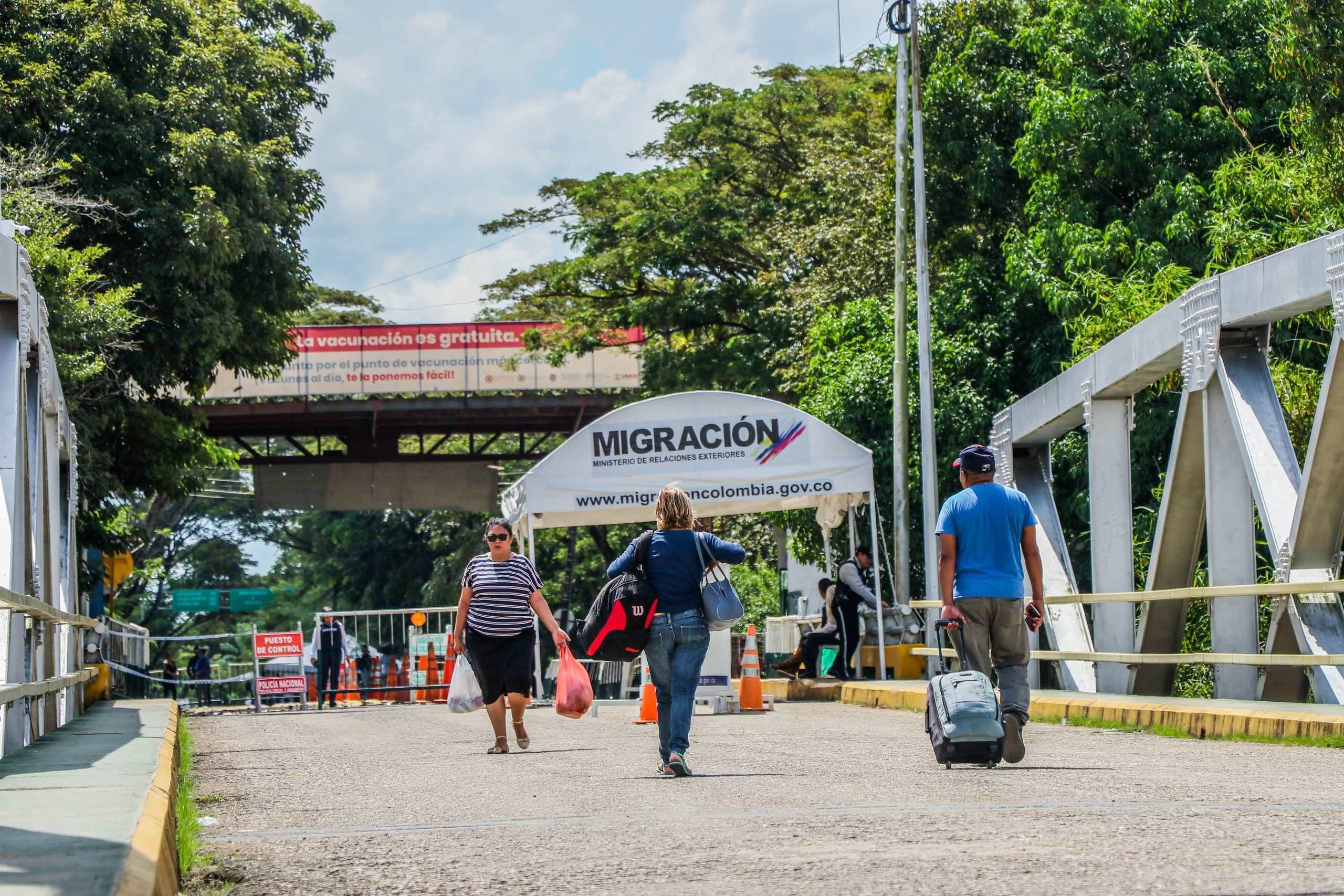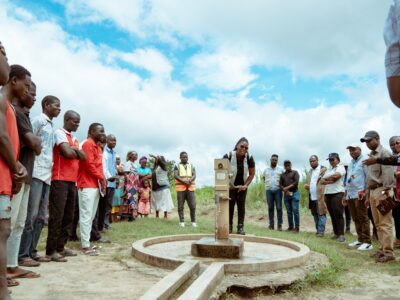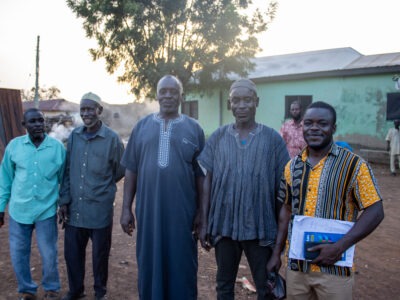
A recent announcement by the Colombian government to offer temporary immigration status to Venezuelans living illegally in the country has been met with relief and hope by almost one million migrants who will benefit under the scheme. The unprecedented move has also received praise from humanitarian organizations across the globe that called Colombia’s response to the crisis a stellar example.
In the face of political turmoil under the government of President Nicolas Maduro, a collapsed economy, and dire shortages of food and health supplies, an estimated 5.4 million people have fled Venezuela in recent years. Prolonged economic and social hardship in the once oil-rich nation continues to drive what has become known as the largest mass migration crisis in Latin America.
Migration Continues During Pandemic
Despite a dip in movement with the onset of the COVID-19 pandemic and subsequent border closures and mandatory quarantines beginning in March 2020, hundreds of people continue to spill across the frontiers every day, seeking opportunities in neighboring countries as the situation in Venezuela remains unstable. Since the start of the political crisis, an untold number of people have left on foot, enduring thousands of kilometers of difficult terrain and confronting harsh weather conditions, such as extreme heat, as they move through the tropics and bitter cold as they traverse high-altitude mountain passes, risking dying of cold or hypothermia.
For the vast majority of those traveling by land, Colombia, which shares 2,019 kilometers of land border with neighboring Venezuela, is the first port of call. And while a significant portion of Venezuelans continue their journey across the continent, it is estimated that at least 1.7 million have remained in Colombia, around 45 percent of whom have the correct legal status.
Venezuelan Migrants Face Uncertainty
To a large extent, the Colombian government has responded to the migration crisis with compassion, providing access to services such as healthcare and education and establishing policies that promote integration. Nevertheless, those without the correct legal status face further barriers accessing employment, housing, and financial services. As a result, a large percentage of Venezuelan migrants find themselves living and working in the informal sector.
Colombian President Announces Residency Plan
In an attempt to reduce some of the barriers encountered by undocumented migrants, Colombia’s President Ivan Duque, alongside UN High Commissioner for Refugees (UNHCR) Fillippo Grandi, announced on February 8, 2021, an unprecedented measure that will see some 966,000 Venezuelans granted legal migratory status. The plan, still in its draft stage, will allow documented and undocumented Venezuelans to access 10-year residency permits.
Challenges Remain, Integration & Opportunities Paramount
While in theory the decree provides a huge sense of relief for thousands of migrants who will now be able to apply for jobs and open bank accounts, the reality is that there will also be a number of challenges to overcome. Colombia is still recovering from decades of civil war and is tackling deep social inequalities, high levels of unemployment, and a lack of opportunities for young people, all of which have been exacerbated by the pandemic and long lockdowns. Amid this backdrop, anti-immigrant sentiments have also risen, making it all the more crucial to seek out policies and strategies that promote integration, mitigate outbreaks of xenophobia, and provide sustainable opportunities for Venezuelan migrants.
ACDI/VOCA Colombia Programming Supports Efforts
ACDI/VOCA in Colombia works closely with the Colombian government, public and private entities, and other international donor organizations, and implements a number of activities funded by USAID to address issues relating to migrants. Through alliances with partner organizations, ACDI/VOCA facilitates training opportunities and job placement to empower vulnerable young people with key skills to work in sectors such as call centers, sales, marketing, and technology. In light of the migration crisis, ACDI/VOCA places special emphasis on ensuring migrants are included in these activities, which also hone skills like building trust, empathy, and dialogue, thus providing not only practical job skills but also creating spaces for integration.
Additionally, ACDI/VOCA implements emergency relief programs in the Colombian border region, attending to food security, protection, and water and safe hygiene needs, and works closely with local and national media to reduce stigmas that perpetuate xenophobic sentiments and provide accurate information relating to migration.
As he elaborated on details of the Temporary Protection Statute, President Duque emphasized Colombia’s firm commitment to welcoming and integrating Venezuelans and ensuring that their rights are upheld. He stressed that this response is based on fraternity and the defense of legality and called on Colombians to show solidarity. Duque closed his speech with strong words, referring to the reasons behind the mass migration crisis.
” . . . [I]f we want to stop this crisis, we have to reflect on how we will put an end to the dictatorship in Venezuela, on how a transitional government can be summoned, with broad representation, to call for free elections, and start the path to reconstruction.”
President Duque
One of the challenges Colombia will face in rolling out the new migratory system will be how to deal with the thousands of people who do not have valid passports or identification documents — in some cases because they have expired, and it has been virtually impossible to renew them, while many others fled with little to no belongings, including documents. Nevertheless, hope remains buoyant for the new statute that UNHCR’s Grandi called “the most important humanitarian gesture” the region has seen in decades and “an extraordinary example for the region and the world.”
Learn more about our work in Colombia.
Comments





